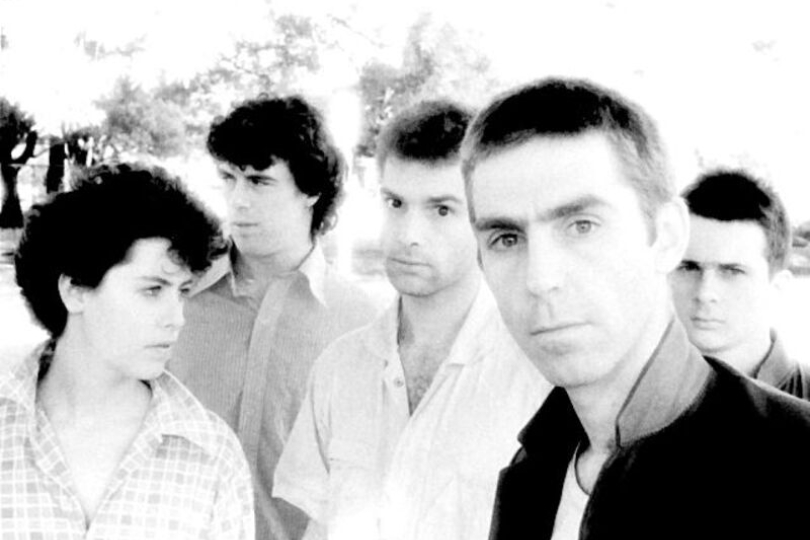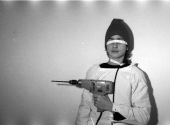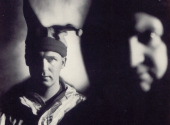
Milestones in Music History #37: Tactics, The Dawn of Post-punk
The techno and acid house revolution brought about by The Future Sound of London (protagonists of our last Milestones) was fundamental to the development of today's electronic scene – but it could not have happened without something a little further back in time. Perhaps, coming from a musical fabric that was in some ways quite different and geographically very distant. We could not fail to discuss one of the most seminal bands of the Australian scene, those who rose post-punk to the dignity of a genre. Who could do it better than Tactics?
We all remember how punk was born. As we have also seen in our previous episodes, especially concerning Germs and Fear, punk took root in the British subculture in the late 1970s, and unquestionably 1977 has always been defined as 'the year of punk'. A purely British phenomenon? One would say not.
Punk was not just a phenomenon of expression of the poor, unheard British classes, but an underlying feeling of the human soul, rebelling and insurgent - a feeling, therefore, universal. And so, the spores of the musical genre crossed Europe, to arrive overseas. Being a popular and underground culture, anywhere punk arrived, it developed and blended with the social and cultural context of the place.
And so it was in Australia, where the genre had taken hold in those very same years. Curiously, Australian punk was influenced by punk from America, and in particular Detroit, where bands like the Stooges and the MC5 were leading the way.
One of the earliest Aussie punk rock bands that were deeply influenced by this sound was The Saints, from Brisbane, who formed in 1973 and were vaguely reminiscent of the sound of the British Pretty Things. At the same time in Sydney, Deniz Tek, a singer, and guitarist from Detroit, had founded the punk rock band Radio Birdman.
It was in this great musical ferment that the Tactics were founded in 1977 in Canberra. The initial lineup consisted of Robert Whittle on drums and percussion, Steve Kilbey (from the band Baby Grande) on bass, Angus Douglas on lead guitar and Dave Studdert on vocals and rhythm guitar. Studdert was eventually the only permanent member of the group.
Dave's vocal aptitude came from above: the likes of Bob Dylan, Neil Young, Arthur Lee of Love, Tom Verlaine of Television and even the French poet Arthur Rimbaud were his inspirational muses. Two years after their formation, the group was invited by punk band Thought Criminals to leave Canberra and move to Sydney, where they began to branch out and play various venues in the city.
Tactics began to form their own following there and they began recording. The three-track extended play Long Weekend dates from this period; although the quality of the recording is rather poor and sounds more like a demo than a release, it highlights the band's sound and their infinite potential.
Television's influence was strong and was also felt in the single they released that same year via Thought Criminals' record label Doublethink, "Hole in My Life". A punk rhythm song, with scratchy down-picked guitars, marked by Studdert's haunting, recalcitrant vocals. A beautiful song in my opinion, which already hinted at how far the band was ahead in their experimentation within punk.
Also, at the end of that year, 1979, the band returned to their hometown of Canberra, where they noticed a different reaction from the audience, shyer and more disinterested and completely different from the scene they had experienced in Sydney. The following year the band released their first studio album, My Houdini.
Released in December 1980 and represented a turning point in the world of punk: even if the rhythm and the guitars were close to the tradition of the genre, the vocals contained something different, new and very far from the classic punk vocals from the U.K. and Detroit. The singing was more focused on artistic interpretation and on the importance of the lyrics.
It was a more intellectual and complex approach, something more advanced than the usual "punk". My Houdini was proof that the punk phenomenon had several facets, some very intriguing and sophisticated. In particular, Studdert's lyrics, according to the liner notes, were inspired by Australian Aboriginal culture, and he wanted to highlight these roots in his songs.
The following year, the band released their second studio album, Glebe. A decidedly very different work from the first, more focused on reggae and dub sounds. Studdert himself acknowledged that from a recording point of view, it was a risky move, but at the same time, he liked the result of the recording and the sound of the album.
But during that year and the following two years, there were several line-up changes, which eventually led to the breakup of the band. Tactics reformed again in 1984 with a new line-up and they relocated to Sydney again. There the single "Fat Man" was born the following year, and the next year the band's third album, Blue and White Future Whale, saw the light.
It was a very disappointing and different release from the days of My Houdini. The sound of the group, probably also due to the many line-up changes, had changed considerably, becoming more cloying and mannered. The punk component had been completely eradicated. Confirming this came their fourth studio work, The Great Gusto, published in 1989. An ambitious and mainstream project, which confirmed the definitive change of direction of Studdert and associates.
The band continued in fits and starts, with further lineup changes over the years, playing sporadic performances and releasing compilations of some of their compositions. In 2019 the band released their new studio album since 1989, Early Shift at Charles de Gaulle. Even if the evolution of the Tactics was not appreciable from the point of view of research and experimentation of their sound, their My Houdini contributed to the enrichment of the punk genre and helped to innovate it. With them, we first had the opportunity to use the word "post-punk".
Studdert's musical vision and intellectual sensibility provided a different, more versatile and fluid approach to their musical genre, which embraced not only other sounds, but also poetry and traditional culture. We will find a similar approach many, many years later in France, with the histrionic electronic duo Air, the protagonist of our next episode of Milestones.
What was the key to the spread of punk around the globe? How could the rebellious punk be a voice of Aboriginal tradition and history? Should a band be judged by its evolution? And how much do line-up changes affect the sound of a band?
Leave your opinion in the comments below!
If you have found an error or typo in the article, please let us know by e-mail info@insounder.org.





